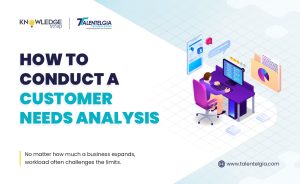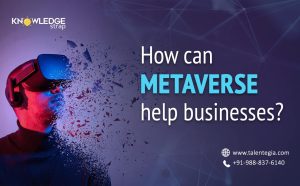Web development is a dynamic and evolving field that requires constant learning and adaptation to new technologies, trends, and demands. Web developers need to choose the right tools and frameworks that can help them create fast, secure, scalable, and user-friendly websites and applications.
One of the most important decisions that web developers need to make is which web development stack to use for their projects. A web development stack is a combination of technologies that work together to provide the frontend and backend functionality of a website or application. The frontend is the part that interacts with the users, while the backend is the part that handles the logic, data, and communication with other services.
There are many web development stacks available in the market, each with its own advantages and disadvantages. However, two of the most popular and widely used stacks are MERN and Django. In this blog post, we will compare these two stacks and see which one is better for your project in 2023.
What is MERN Stack?
MERN stands for MongoDB, Express.js, React.js, and Node.js. These are four technologies that form the core of the MERN stack.
- MongoDB: MongoDB is a NoSQL database that stores data in JSON-like documents. MongoDB is flexible, scalable, and easy to use. It can handle large volumes of data and complex queries efficiently.
- Express.js: Express.js is a web framework that runs on Node.js. Express.js simplifies the development of web applications by providing features such as routing, middleware, error handling, and templating.
- React.js: React.js is a JavaScript library that helps create interactive and dynamic user interfaces. React.js uses components, state, props, hooks, and JSX to build reusable and modular UI elements.
- Node.js: Node.js is a runtime environment that allows JavaScript to run on the server-side. Node.js is fast, lightweight, and event-driven. It can handle concurrent requests without blocking the main thread.
The MERN stack is a full-stack solution that covers both the frontend and backend aspects of web development. The MERN stack allows developers to use JavaScript as the main programming language for both the client-side and server-side code. This reduces the complexity and learning curve of web development.
What is Django?
Django is a web framework that is based on Python. Python is a high-level, general-purpose, interpreted programming language that is known for its readability, simplicity, and versatility.
Django follows the Model-View-Template (MVT) pattern, which separates the data (model), logic (view), and presentation (template) layers of a web application. Django provides features such as:
- Object-relational mapper (ORM): ORM is a tool that maps Python objects to database tables and vice versa. ORM allows developers to manipulate data using Python code instead of SQL queries.
- Admin interface: Admin interface is a built-in feature that allows developers to create, read, update, and delete data from the database using a graphical user interface.
- Authentication system: Authentication system is a built-in feature that handles user registration, login, logout, password management, permissions, and roles.
- Template engine: A template engine is a tool that allows developers to create dynamic HTML pages using variables, filters, tags, and inheritance. Template engine allows developers to separate the logic and presentation of a web application.
- URL dispatcher: URL dispatcher is a tool that maps URLs to views. URL dispatcher allows developers to define and organize the URL patterns of a web application.
- Testing framework: Testing framework is a tool that helps developers write and run automated tests for their web application. Testing framework helps developers ensure the quality and functionality of their web application.
Django is a full-stack solution that covers both the frontend and backend aspects of web development. Django allows developers to use Python as the main programming language for both the client-side and server-side code. This reduces the complexity and learning curve of web development.
Read also – How to Make the Most of Custom Development: Emerging Trends and Technologies?
MERN Stack vs Django: A Comparison
MERN stack and Django are both popular and widely used web development stacks that offer many features and benefits to developers. However, they also have some differences and trade-offs that need to be considered before choosing one over the other. Here are some of the main factors that can help you compare and contrast MERN stack and Django:
Ease of Use
Both MERN stack and Django are easy to use and learn, as they provide a lot of documentation, tutorials, and community support. However, they also have some differences in terms of ease of use, such as:
- MERN stack requires developers to learn and use JavaScript as the main programming language for both the frontend and backend. This can be an advantage or a disadvantage, depending on the developer’s preference and experience with JavaScript. JavaScript is a versatile and powerful language, but it can also be complex and inconsistent.
- Django requires developers to learn and use Python as the main programming language for both the frontend and backend. This can be an advantage or a disadvantage, depending on the developer’s preference and experience with Python. Python is a simple and elegant language, but it can also be slow and less efficient.
- MERN stack requires developers to use multiple technologies and frameworks, such as MongoDB, Express.js, React.js, and Node.js. This can provide more flexibility and functionality, but it can also increase the complexity and maintenance of the web application.
- Django requires developers to use a single framework that provides most of the features and functionalities needed for web development. This can provide more consistency and simplicity, but it can also limit the customization and scalability of the web application.
Performance
Both MERN stack and Django provide high performance and speed for web development, as they use modern and efficient technologies and frameworks. However, they also have some differences in terms of performance, such as:
- MERN stack uses MongoDB as the database, which is a NoSQL database that stores data in JSON-like documents. MongoDB is fast, flexible, and scalable, but it can also be less reliable and secure than relational databases.
- Django uses ORM as the tool to interact with the database, which can be any relational database such as PostgreSQL, MySQL, or SQLite. ORM is convenient, portable, and secure, but it can also be less performant and less flexible than native SQL queries.
- MERN stack uses Node.js as the runtime environment, which allows JavaScript to run on the server-side. Node.js is fast, lightweight, and event-driven, but it can also be difficult to debug and handle errors.
- Django uses Python as the programming language, which runs on various platforms and frameworks. Python is simple, elegant, and expressive, but it can also be slow and less efficient than compiled languages.
Scalability
Both MERN stack and Django provide scalability for web development, as they can handle large volumes of data and traffic. However, they also have some differences in terms of scalability, such as:
- MERN stack uses MongoDB as the database, which can scale horizontally by adding more servers or shards. MongoDB can also replicate data across multiple servers or regions for high availability and fault tolerance.
- Django uses ORM as the tool to interact with the database, which can scale vertically by adding more resources or hardware. ORM can also use caching and load balancing techniques to improve performance and reliability.
- MERN stack uses React.js as the frontend framework, which can scale easily by using components, hooks, and virtual DOM. React.js can also use server-side rendering and code splitting techniques to improve performance and user experience.
- Django uses template engine as the frontend tool, which can scale moderately by using inheritance, filters, and tags. Template engine can also use static files and CDN services to improve performance and user experience.
Security
Both MERN stack and Django provide security for web development, as they use various technologies and frameworks that protect the web application from common threats and attacks. However, they also have some differences in terms of security, such as:
- MERN stack uses MongoDB as the database, which can be vulnerable to injection attacks if not properly validated and sanitized. MongoDB can also be exposed to unauthorized access if not properly configured and secured.
- Django uses ORM as the tool to interact with the database, which can prevent injection attacks by using parameterized queries and escaping values. ORM can also use encryption and hashing techniques to protect sensitive data.
- MERN stack uses Express.js as the web framework, which can be vulnerable to cross-site scripting (XSS) attacks if not properly sanitized and escaped. Express.js can also be exposed to cross-site request forgery (CSRF) attacks if not properly verified and authenticated.
- Django uses its own web framework, which can prevent XSS attacks by using auto-escaping and safe filters. Django can also prevent CSRF attacks by using built-in middleware and tokens.
Read also – Developing a Travel and Tourism App: A Step-by-Step Guide


Conclusion
MERN stack and Django are both powerful and popular web development stacks that offer many features and benefits to developers. However, they also have some trade-offs and limitations that need to be considered before choosing one over the other.
The choice of web development stack depends on various factors, such as:
- The project requirements and specifications
- The developer’s preference and experience
- The available resources and budget
- The future goals and expectations
There is no definitive answer to which web development stack is better in 2023, as both MERN stack and Django have their own strengths and weaknesses. The best way to decide is to evaluate both stacks based on your own criteria and needs.
If you are looking for a reliable and trustworthy partner who can provide you with the best web development services using MERN stack or Django, look no further than Talentelgia. Talentelgia is a leading provider of web development services that offer a range of features and functionalities for various web applications. Their web development services are designed to be user-friendly, secure, scalable, customizable, and affordable. Talentelgia also offers professional services and support to help you implement, integrate, customize, and optimize your web applications.
They can help you achieve your web development goals with their web development services using MERN stack or Django. Contact us today to find out more about our web development offerings and how we can help you transform your web application with MERN stack or Django.







